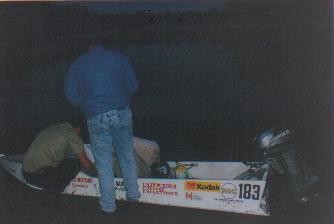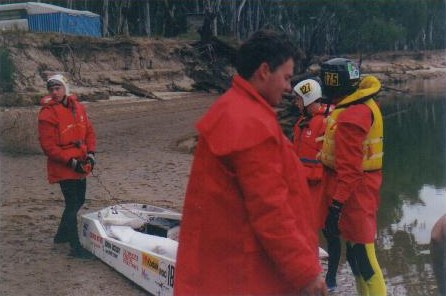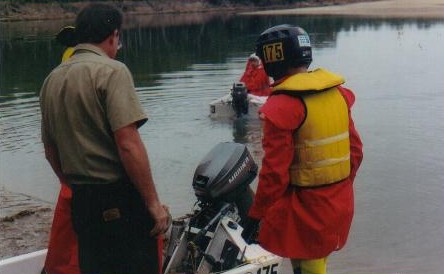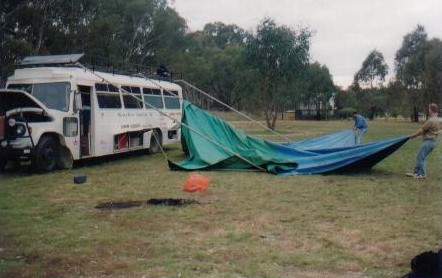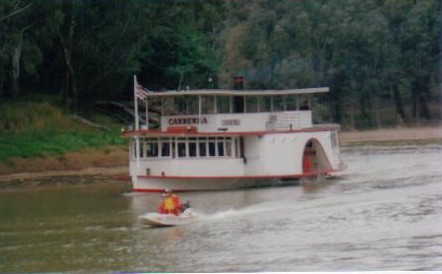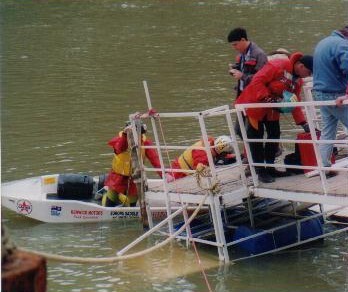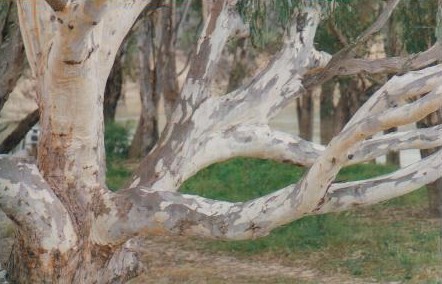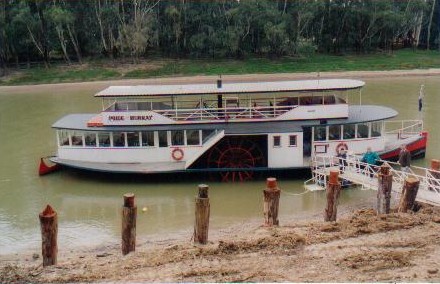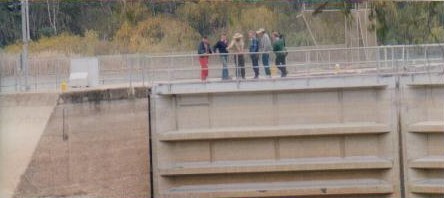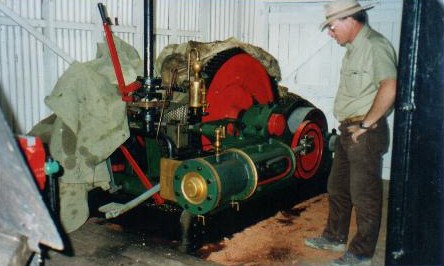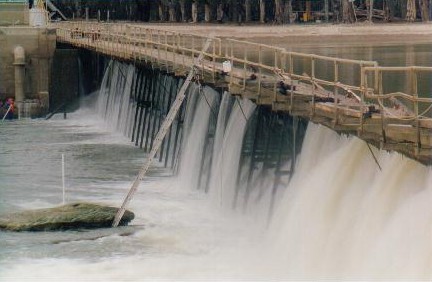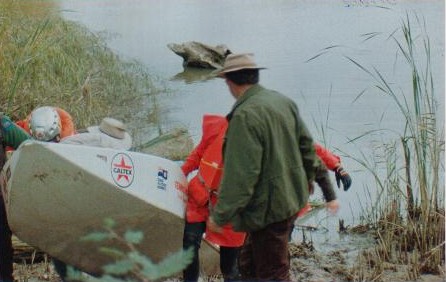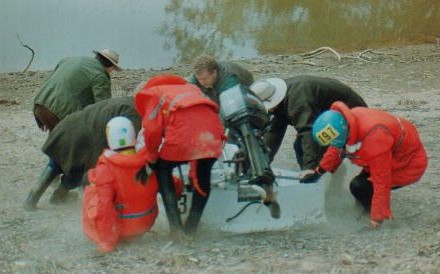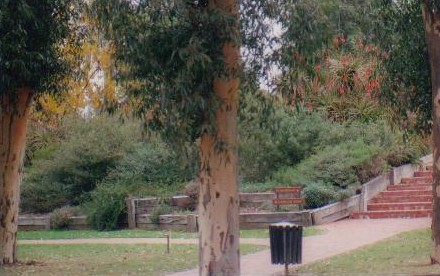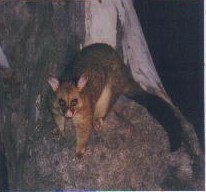Preparations started early enough but the pre-dawn advantage was frittered away. The 0745 hrs departure wasted precious minutes of daylight that was to be rued later in the expedition.
Tony couldn’t work out why he had such a headache.
- Kim and Adrian fitting GPS.
- Pre-dawn preparations at Tocumwal.
- Geoff doing a comms check.
- Tony making last minute propeller selections.
- Final checks before departure.
- Packing up at Tocumwal.
The water level was still low. Tony and I refuelled the boats at Lupmans Camp in the middle of the Barmah State Forest after some furious driving along winding bush tracks. The low water level meant that there was mud everywhere along the banks, making refuelling a more difficult task than it might otherwise have been, and definitely more messy.
- Low water level at Barmah made refuelling difficult.
Tony and I then headed to Barmah to again refuel the boats. It was cold, the skies were grey, the water was low and the banks were muddy. All in all, depressing. The only bright note was that the water level appeared to be rising the farther downstream the team progressed. After the very muddy refuelling at Barmah it was on to Echuca to meet the press.
- First boat into Echuca.
- Second boat into Echuca.
- The local press at Echuca were very keen and did a good job of publicising our record attempt.
Refuelling and crew changes took twenty minutes. One of the Triton’s tyres had a slow leak and Tony fixed this while I spoke to the press and refuelled the boats.
- At Echuca.
- Pride of the Murray
- Emmy Lou
With The Bus crew, we pushed on to Torrumbarry Weir and arrived well before the boats. I renewed acquaintances with one of the staff who was also a member of Victorian Dinghy Racing Club and whom I had met some eleven years previously at the Edward River Race.
- Major repairs were being carried out on the wall of Torrumbarry Weir.
- Discussions on the best way to get around the weir.
- Kim inspecting engine that was previously used to winch the sections of of the weir wall in to place. It is still in working order.
- Engineers working on the weir.
After a tour of the weir, lock and associated machinery it was considered that the lock would be too slow to open so it was decided to carry the boats over a levee bank and re-launch them in the old bend in the river. This quiet backwater eventually leads back into the river proper. When the boats arrived this operation took 17 minutes.
- Haul the boats out of the water.
- Slide the boats down the bank.
- Continue the expedition.
- Downriver from Torrumbarry.
- Torrumbarry gardens.
After leaving Torrumbarry Tony and I followed tracks through the Gunbower State Forest to escort the boats. The tracks were greasy, slippery and dangerous. The consequences of an accident, however minor, are far greater for the expedition than they would be for locals, or for expedition members if they were back home. No record attempt can afford the time required to extricate a crashed vehicle, repair damage (even temporarily) and get back on track.
The boat crews arrived at Barham at 1720 and met with The Bus crew who had set up camp in a caravan park right at the water’s edge. Tony and I had trouble locating the caravan park and it was only after a few laps of the main street, a sortie into into another caravan park and a few short words that we found the correct location. The others in the team had established camp by the time we arrived.
The pressure and long hours were starting to tell. It was was an early night for all except me. Planning the next day’s fuel stops and vehicle route keep me up till past midnight.
- Late night route planning for Kim.
- Possum
Bernie woke up at 0100, smelled diesel and discovered that the fuel had been leaking out The Bus tank. The pump had been left on after earlier attempts to repair it.
Lessons learnt on Day Three:
- Checking, checking, checking is vital.
- Early starts are vital.
- Local knowledge is a contradiction of terms.

